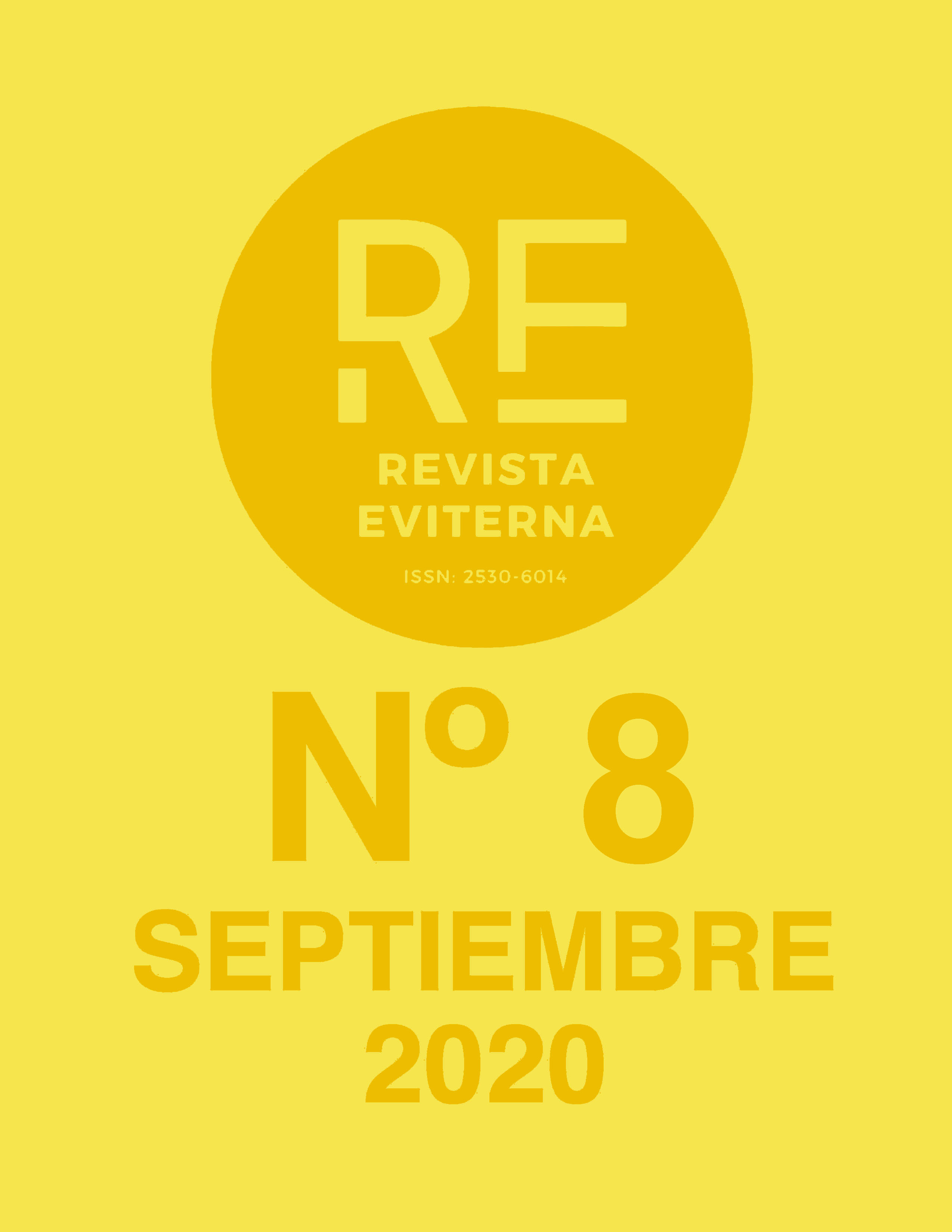Close relationships
(Re) readings of oral sex and cannibalism in the work of Félix González-Torres
DOI:
https://doi.org/10.24310/Eviternare.vi8.9602Keywords:
contemporary art, Félix González-Torres, oral sex, canibalism, desireAbstract
When a piece of art is as open and attractive as Felix González-Torres ones, it is inevitable to activate alternative readings at the same time and space in which the work is viewed. The omnipresent presence of desire in his artistic production, especially in his candy mountains', will allow him to offer new layers of meaning and to establish relationships between cultural acts (as vital as stigmatized) such as oral sex and
cannibalism. These elements also provide new permeable considerations in the work of González-Torres, such as the limits between the public and the private space, the politicization of the body and the rejection of the other.
Downloads
Metrics
Publication Facts
Reviewer profiles N/A
Author statements
Indexed in
-
—
- Academic society
- N/A
- Publisher
- Universidad de Málaga
References
Batallé, J. (14 de abril de 2015). Julia Morandeira Arrizabalaga, comisaria de “Canibalia”. Recuperado de http://www.rfi.fr/es/cultura/20150413-julia-morandeiraarrizabalaga-comisaria-de-canibaila
Blanco, C. (27 de julio de 2018). Ni hablar de sexo oral. Recuperado de: https://elpais.com/elpais/2018/06/10/mordiscos_y_tacones/1528643281_831390.html
Castillero Mimenza, O. (2019). Vorarefilia: síntomas, causas y tratamiento de esta parafilia. Recuperado de https://psicologiaymente.com/clinica/vorarefilia
El País (30 de enero de 2004). Los jueces alemanes condenan al “caníbal de Rotemburgo” a tan sólo ocho años de cárcel. Recuperado de: https://elpais.com/internacional/2004/01/30/actualidad/1075417202_850215.html
Guasch, Anna María (2000). El arte último del siglo XX. Alianza Forma: Madrid.
Harding, L. (31 de enero de 2004). Cannibal who fried victim in garlic is cleared of murder. Recuperado de: https://www.theguardian.com/world/2004/jan/31/germany.lukeharding
Kadist (2015) Canibalia. Recuperado de https://kadist.org/program/canibalia-julioarrizabalaga/
Morandeira, Julia (2015-2017). Canibalia. Recuperado de https://canibalia.tumblr.com/
Spector, N. (1994), «Travelogue». Parkett, nº 39, p. 17.
Troncy, E. (1992), « Félix González-Torres. Placebo». Art Press, pp. 32-36.
Villapadierna, R. (31 de enero de 2004). Condena de ocho años de prisión para el “caníbal” alemán, Armin Meiwes. Recuperado de: https://www.abc.es/internacional/abci-condena-ocho-anos-prision-para-canibal-alemanarmin-meiwes-200401310300-236712_noticia.html
Yakovenko, M. (11 de febrero de 2016). “Él quería sacrificarse. Quería ser comido vivo”. Recuperado de https://www.playground.media/news/el-queria-sacrificarsequeria- ser-comido-vivo-33436
Downloads
Published
How to Cite
Issue
Section
License
All the contents published in Revista Eviterna are subject to the Creative Commons Reconocimento-NoComercia-Compartirigual 4.0 license, the full text of which can be found at <http://creativecommons.org/licenses/by-nc-sa/4.0>
They may be copied, used, disseminated, transmitted and publicly exposed, provided that:
The authorship and original source of your publication (Journal, editorial and URL of the work) are cited.
They are not used for commercial purposes.
The existence and specifications of this use license are mentioned.

Copyright is of two kinds: moral rights and patrimonial rights. Moral rights are perpetual, inalienable, inalienable, inalienable, inalienable and imprescriptible prerogatives.
In accordance with copyright legislation, Revista Eviterna recognizes and respects the moral rights of the authors, as well as the ownership of the economic right, which will be transferred to the University of Malaga for dissemination in open access.
The economic rights refer to the benefits obtained by the use or disclosure of the works. Revista Eviterna is published in open access and is exclusively authorized to carry out or authorize by any means the use, distribution, disclosure, reproduction, adaptation, translation or transformation of the work.
It is the responsibility of the authors to obtain the necessary permissions of the images that are subject to copyright.







12.png)



